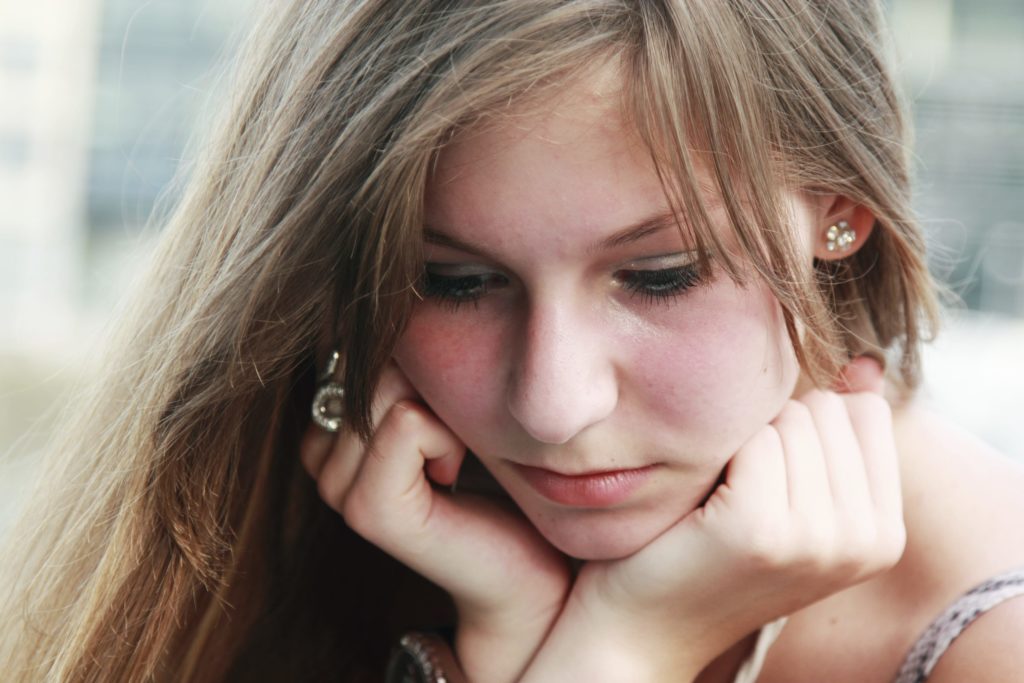A recent study from the University of Adelaide in South Australia has identified an apparent link between insomnia, depression, generalized anxiety and panic disorders in teenagers. The results of the study were recently published in the journal Sleep Medicine. Led by Pasquale Alvaro, a Ph.D. student at the school of psychology, the Adelaide researchers found that insomnia was independently linked to the presence of major depressive disorder, generalized anxiety disorder and various panic disorders. They also found that increased activity in the evening among teenagers is an independent risk factor for depression and insomnia. The research team studied more than 300 students between the ages of 12 and 18 in the province of South Australia. Worldwide, approximately 11 percent of teenagers between the ages of 13 and 16 suffer from insomnia.
‘Eveningness’ Chronotype a Risk Factor
The researchers identified the time of day during which each of their teenage subjects was most active, and how late they tended to go to bed. This preference for activity earlier in the day or later in the day is known as a person’s “chronotype.” According to the findings, the students who showed more activity in the evenings and stayed up later were more likely to have insomnia, depression or symptoms of both conditions. As a result, the “eveningness” chronotype appears to be a more significant risk factor for these conditions than other chronotypes. The researchers also found that students with the “eveningness” chronotype were more likely to suffer from obsessive-compulsive disorder, separation anxiety and social anxiety or phobia. However, these conditions were not independently linked to higher evening activity as depression and insomnia were; in other words, the researchers were not able to rule out outside factors that might be the independent cause of the combined presence of evening activity and one or more of these conditions. A worrying element of these new findings is that a large majority of teenagers in most parts of the world naturally develop a preference for evening activity. Deliberately delaying sleep can make it more and more difficult to fall asleep at a regular hour, and can eventually result in full blown sleep disorders. The screen-dominated nature of late-night activity common to adolescents, such as video games, Internet surfing and television watching, has also been linked to difficulty getting to sleep. The connection between insomnia and depression or anxiety is also troublesome because the presence of a sleep disorder can make it more challenging to treat psychiatric illness, and vice versa. Alvaro notes that complications and delays in effective treatment for mental illness can in turn increase the risk of substance use disorders.
Taking Steps to Avoid Sleep Problems
Because of these findings, Alvaro believes that prevention efforts as well as treatment techniques for teenagers and mental illness should take account of the links between insomnia, depression, anxiety and panic conditions. He also believes that teenagers should take measures to avoid overstimulation in the evenings that can lead to the development of sleep disorders. Studies have found that spending significant time in front of a bright screen before bed can make it much more difficult to fall asleep. Dimming these screens or taking a break before bed for an activity that does not involve bright light can help the brain to transition into sleep mode. Many teenagers also spend a significant amount of time in their bedrooms, and often on their beds. However, studies suggest that staying out of bed unless you are trying to relax or sleep can be helpful, because it helps the brain get used to triggering sleep when you do get into bed. Doing homework, playing video games or engaging in other stimulating activity trains the brain to do the opposite. Of course, these tactics can help to solve sleep problems in people of any age. But the late-night tendencies of adolescents as well as the research suggesting that sleep problems increase the risk of psychiatric illness means tools for a regular night’s sleep may be particularly important for this age group.






